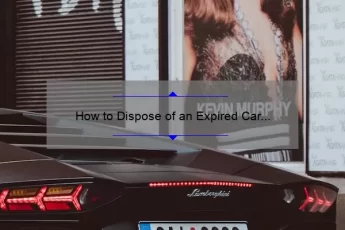You might be wondering if it is okay to throw car batteries into the ocean. This article will address whether it is safe and how it affects the aquatic life. We’ll also examine the environmental impact of car batteries, including their effects on electric eels. The answer may surprise you.
Why it is safe to throw car batteries in the ocean
Many people may wonder if it is safe to throw car batteries in the water, but the fact is that car batteries can damage the environment and harm wildlife. Fish and other animals mistake the batteries for food and are at risk of becoming poisoned when they ingest them.
Batteries are made to withstand the elements, but they eventually corrode and leak toxins into the environment. If you find a car battery in the ocean, call a professional to safely dispose of it. Most battery recycling centers will recycle your battery for free, but some charge a fee of $15 or more. The toxins in car batteries are harmful to marine life and can harm people as well.
You may have seen the Internet memes about people who throw car batteries into the ocean. A search on Google will reveal numerous results on whether it is safe to throw car batteries in the ocean. But keep in mind that not all of them come from industry groups or scientific groups. Some are just people who are interested in a laugh. So, you might want to read more than one source before making a decision.
Some of these batteries contain lead, which can enter a child’s body and cause behavioral and learning problems. In addition, the chemicals in used car batteries lead to water and soil pollution. As a result, the water and soil become acidic, affecting aquatic life. The exposure to lead is not only harmful to humans, but also to other animals. The dangers of dumping car batteries in the ocean are significant enough to make it illegal.
Throwing car batteries in the ocean is a criminal offense, which may lead to a $250,000 fine and five years in jail. While it is tempting to think that it is harmless, you should reconsider. Batteries should be recycled or disposed of properly. There are many ways to dispose of them and recycle them, and recycling them is a good way to reduce your environmental impact.
Is it harmful to aquatic life
The concept of tossing a few car batteries into the sea has gotten a lot of press recently. While it may not seem dangerous at first, car batteries contain toxic elements and are known to affect the environment. Mercury, for example, is one of the most prevalent car battery chemicals and can cause health issues. It affects the digestive system, immune system, and lungs. In extreme cases, it can even lead to death. The danger is compounded if humans and animals eat the batteries.
Throwing batteries into the ocean is illegal and has a variety of health implications. If you get caught, you could face a fine and/or even jail time. The maximum fine for this kind of waste is $250,000 and the maximum jail sentence is five years. Even if you can’t pay the fine, the best option is to recycle your batteries and avoid putting them in the water.
Is it good for the environment
According to a report from the US Geological Survey, there is a reserve of 274 million tonnes of nickel in the ocean. This is enough to power up more than a million cars. However, the mining process depletes the ocean’s capacity to absorb CO2. If we want to keep the ocean clean, we must stop depleting its natural resources.
When I asked Google if throwing a few car batteries into the ocean was good for the environment, the answer was somewhat strange. It read: “If you throw a few car batteries into the sea, they charge electric eels and power the Gulf stream.” That reply became an internet meme and an online sensation.
Batteries also pollute the water and seabed, destroying species and causing major environmental problems. Even worse, they poison marine life and can make it unsafe to eat. Because of these risks, the government has passed laws against throwing batteries into the ocean.
Car batteries contain hazardous elements, like lead and cadmium. As they decompose, they release toxins into the environment. Mercury can damage humans and other animals. It can also pollute groundwater and soil. Moreover, lead and cadmium batteries can be consumed by humans and animals.
Whether you’re using an electric vehicle or not, the batteries in your vehicle will pollute the water. Besides being a health risk, car batteries also cause health problems to marine life. This is why you should properly dispose of your used car batteries at a recycling center.
Is it harmful to electric eels
Electric eels can shock humans with a small electric current lasting as little as two-thousandths of a second, causing muscle spasms. These creatures have been known to live in the ocean for more than 250 years, but scientists are concerned about their future given climate change.
Electric eels live in murky waters, and their bodies contain over 6,000 electrocytes – specialized cells that store and release voltage. Their shocks are strong enough to knock humans unconscious and kill them. However, you should be aware that electric eels are not true eels – they are actually more closely related to catfish than to eels.
Although there are many myths about electric eels, there are a few solid facts that will help you decide whether or not to throw a few batteries into the ocean. First of all, you shouldn’t throw used car batteries in the ocean. Instead, you should donate them to an organization dedicated to protecting them from extinction.
Electric eels are related to catfish and knife fish. They are 2 to 2.5 meters long and weigh up to 60 pounds. Their long, cylindrical bodies are decorated with a long, elongated tail fin. This tail fin is what helps them move.
The battery of electric eels is made up of thousands of individual cells that are connected together in a series of arrays. This system releases electricity when they detect predators or prey. The electricity produced by these eels can seriously hurt a human.








